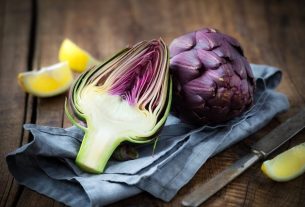Laurel is a medicinal plant of the species A noble laurelwidely used in cooking to add flavor and aroma to prepared meals, but it also has medicinal properties, and is therefore used in traditional medicine to help treat digestive problems, infections, stress or anxiety, for example.
The normally used part of bay leaves is its leaves, in fresh or dehydrated form, from which substances such as tannins, flavonoids, alkaloids, linalool, eugenol, methyl chavicol and anthocyanins are extracted, with anti-inflammatory, diuretic, antioxidant, digestive and anti-rheumatic.
Bay leaves can be purchased in practically all markets and in some fairs and natural product stores, and their medicinal use should always be carried out under the guidance of a doctor or other professional who has experience with the use of medicinal plants.

What is it for
Bay leaf is used for:
1. Act as an antimicrobial
The oils concentrated in bay leaves have antimicrobial action, acting against some bacteria such as Staphylococcus aureus, Enterococcus sp., Escherichia coli and Pseudomonas aeruginosa, which are responsible for infections of the skin, gastrointestinal system and urinary tract, for example. Furthermore, bay leaf extract has antifungal action against some species of fungi.
2. Control type 2 diabetes
Bay leaves improve the function of insulin, the hormone responsible for causing glucose to enter the body’s cells to provide energy, regulating blood sugar, being important in the prevention and control of diabetes.
3. Regulate cholesterol levels
The extract of dried bay leaves has essential oils, such as cineole and polyphenols with antioxidant activity that helps regulate blood cholesterol, reducing LDL cholesterol and triglycerides, increasing the level of HDL cholesterol in the blood. In this way, laurel can help prevent cardiovascular changes, such as atherosclerosis, myocardial infarction or stroke.
4. Relieve gastrointestinal problems
Bay leaves, due to their antioxidant, anti-inflammatory and antispasmodic properties, can help treat various digestive disorders, such as ulcers, for example, in addition to promoting relief from gastric and intestinal cramps. Furthermore, bay leaves contain tannins, which have a strong astringent action, being useful in cases of diarrhea.
Furthermore, the active compounds in bay leaf cause an increase in the amount of enzyme secretion and gastric mucus, helping to improve digestion, in addition to having a protective effect against gastric injuries.
Laurel has anti-inflammatory properties that help relieve rheumatic pain and osteoarticular inflammation, arthritis, sprains and bruises.
6. Prevent tumors
Bay essential oil and some of its active substances have antioxidant and anti-cancer activity, preventing the growth of tumor cells.
7. Relieve respiratory problems
Bay leaves have an expectorant effect and have the ability to eliminate excess phlegm and mucus present in the respiratory tract, thus providing relief from nasal congestion. This helps to make breathing freer and is recommended in cases of colds, flu and bronchitis.
Furthermore, as it has antibacterial and antiseptic activity, it is also useful for eliminating any bacteria or viruses that could cause infections in the respiratory system, thus preventing the onset of diseases.
8. Prevent kidney stones
Bay leaf extract, together with other medicinal herbs, could help prevent kidney stones, as it is capable of reducing the amount of urease in the body, which is an enzyme that is associated with an increased risk of having kidney stones. . However, more studies are still needed to confirm this effect of blonde.
9. Improve cognitive ability
Laurel has antioxidant properties that could improve memory and, at the same time, effectively reduce other cognitive problems that can appear with age, including neurodegenerative diseases, such as Parkinson’s, for example.
10. Promote relaxation
Bay leaves contain substances such as linalool and cineole, which release essential oils that help relax the central nervous system, relieving stress and anxiety.
Laurel properties
The bay leaf, and consequently the tea, is rich in potassium, magnesium and vitamins B6, B9 and C and has diuretic, antifungal, anti-rheumatic, anti-inflammatory, digestive, stimulating, antioxidant and expectorant actions,
How to make bay leaf tea
Tea is a great alternative to enjoy all the benefits of bay leaves, being considered a good option for poor digestion, anxiety and stress, for example.
Ingredients:
- 1 dry bay leaf;
- 1 cup of boiling water.
Preparation mode:
To prepare the tea, simply place the bay leaf in boiling water and let it rest off the heat for about 10 minutes. Then strain and drink the tea 3 to 4 times a day.
Possible side effects
Bay leaves are considered safe when used in cooking or as a tea. However, when consumed in quantities greater than those recommended, they can cause drowsiness, as this plant has a calming effect and is capable of slowing down the nervous system, in addition to causing gastrointestinal changes, such as diarrhea or abdominal cramps, or headache, for example. example.
Due to its ability to control sugar levels, excessive consumption of bay leaves can also lower blood sugar levels too much, causing hypoglycemia. Know how to identify the symptoms of hypoglycemia.
Therefore, it is important that the consumption of bay leaves is done according to the guidance of a nutritionist, doctor or herbalist so that the ideal quantity is indicated that does not result in side effects.
Who shouldn’t use
The consumption of bay leaves is not recommended for children, breastfeeding women or during pregnancy, as it may encourage miscarriage. Furthermore, consumption of bay leaves should be done with caution in people with diabetes, as it can greatly reduce blood sugar levels.
Furthermore, you should not ingest the bay leaf, as it is not digested by the digestive system, remaining intact and may become lodged in the throat or perforate the intestine.
As it slows down the nervous system, it is recommended to stop using laurel 2 weeks before any surgery.

Sign up for our newsletter and stay up to date with exclusive news
that can transform your routine!
Warning: Undefined array key "title" in /home/storelat/public_html/wp-content/plugins/link-whisper-premium/templates/frontend/related-posts.php on line 12
Warning: Undefined array key "title_tag" in /home/storelat/public_html/wp-content/plugins/link-whisper-premium/templates/frontend/related-posts.php on line 13



